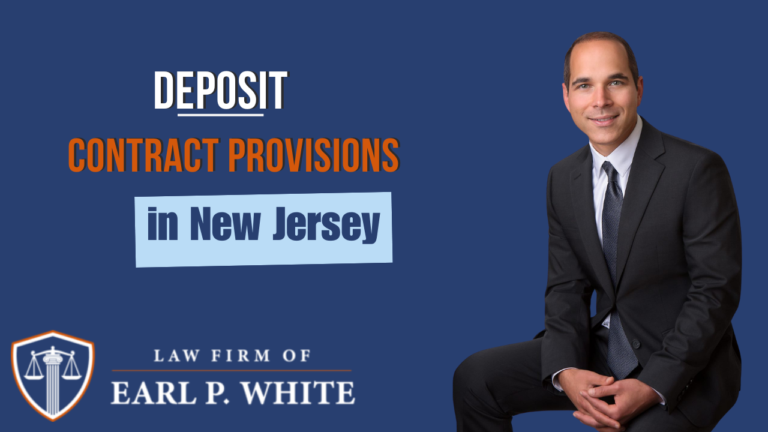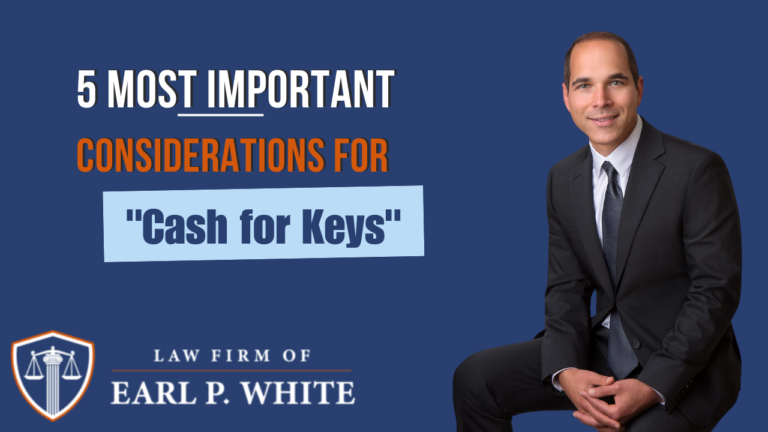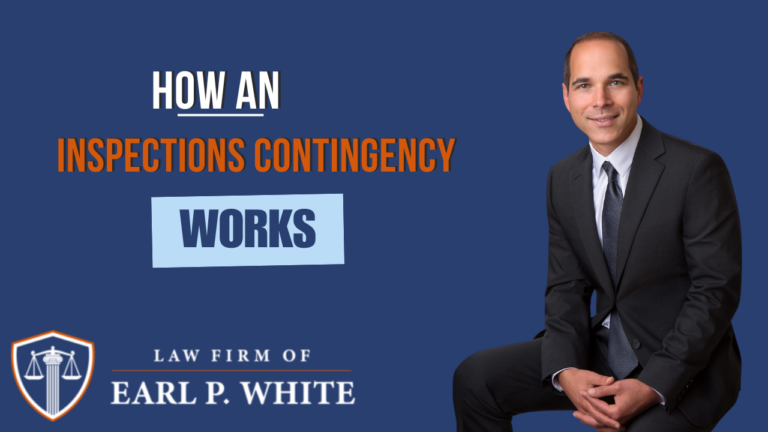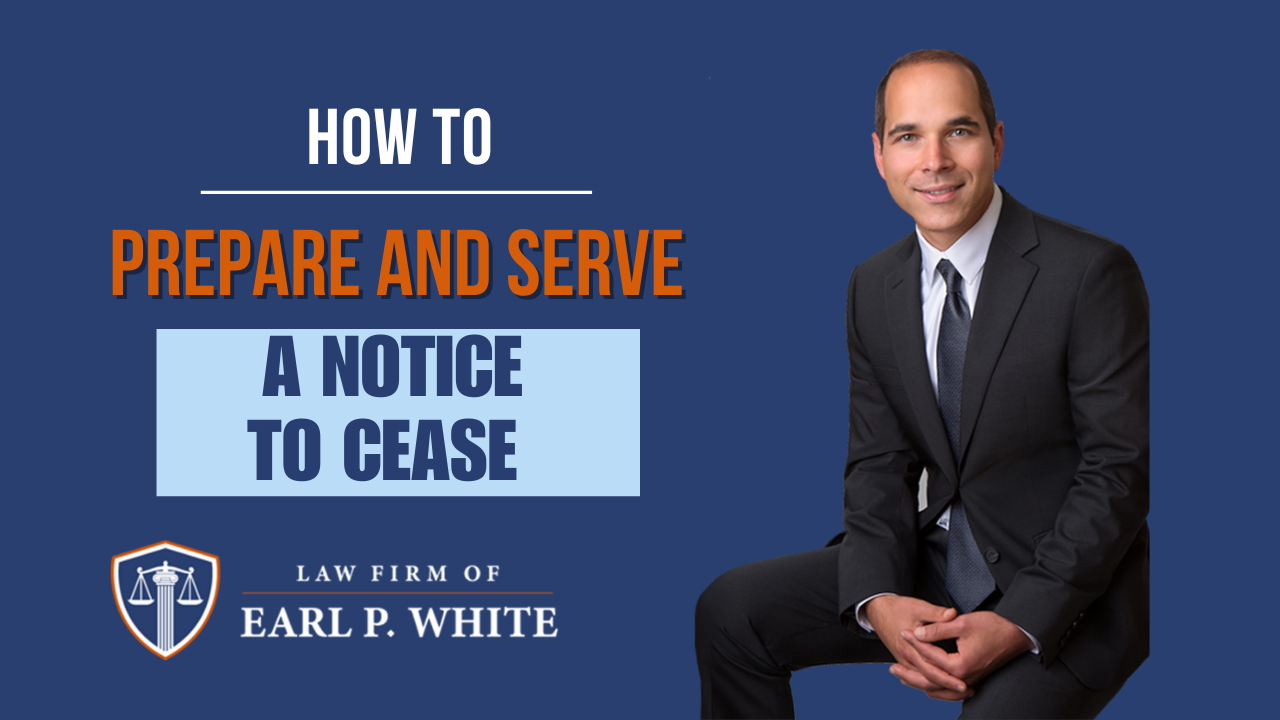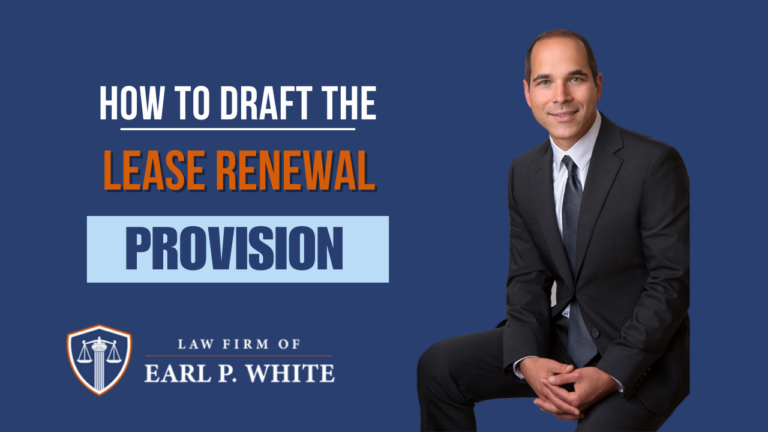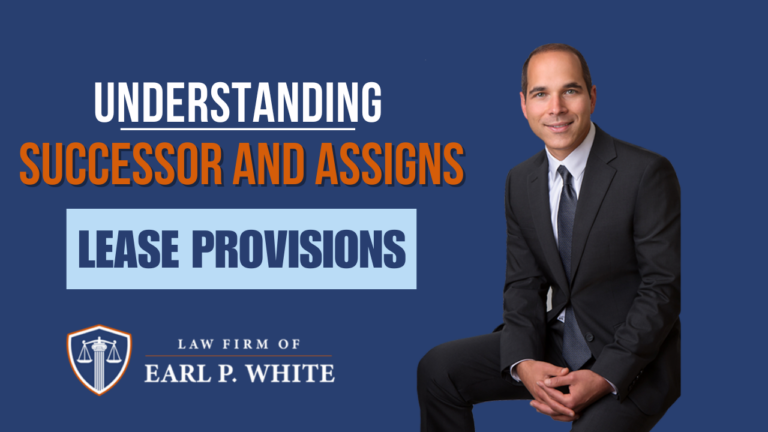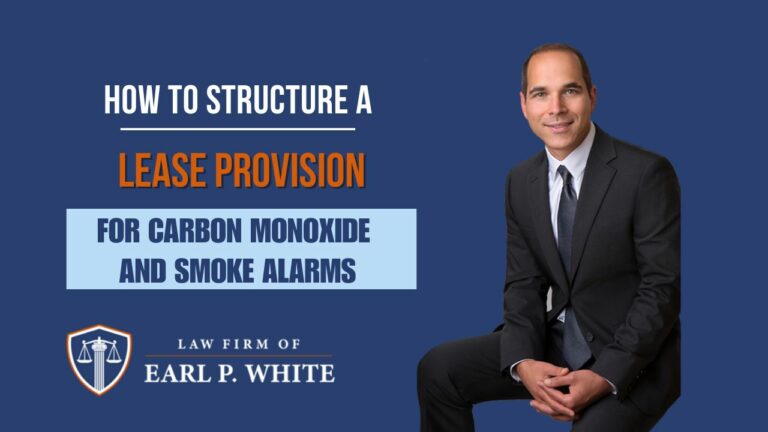Buying a house with open permits or code violations in New Jersey presents risks of feature trouble, including municpal fees, renovation costs, or a difficult time selling the property. Similarly, selling property in New Jersey with open permits or code violations may result in a canceled sale or delayed closing. A timely “Open Public Records Act” with the municpality can allow the parties to resolve these challenges in advance.
Members of our free Real Estate Law Newsletter receive exclusive access to resources for landlords, investors, and other real estate professionals. Join today!
For assistance with real estate sales in New Jersey with permit or violation problems, contact us at (201) 389-8275 or contact@earlwhite.law.
This is real estate attorney Earl White. This is a video about New Jersey’s Open Public Records Act, and if you’re a real estate agent or a real estate attorney representing a buyer, or if you’re a listing agent or even a seller or for sale by owner that’s going to be putting up a property on the market, submitting an Open Public Records Act request early in the process can help prevent delays with the closing and then even the deal falling through due to substantial delays.
This video is going to cover what is the Open Public Records Act or the grounds for being created. Also, going to cover how it comes up in real estate transactions and also some tips and strategies when you’re submitting them, how to read them, and how to draft the Open Public Records Act Request to avoid any problems.
So the Open Public Records Act Request was passed in 2001 and the purpose of it was to allow individuals access to government records. So I’m going to read from the case here, Simmons versus Mercado, which came down from the New Jersey Supreme Court actually this year in 2021 that said, “The government in New Jersey has a long and proud tradition of openness and that OPRA was enacted to further enhance government transparency and to maximize public knowledge about public affairs in order to ensure we have an informed citizenry.”
So the Open Public Records Act statute about government transparency and getting government records. The state is very broad. Buyers and sellers can request plenty of types of documents. According to the statute, partites may request, any paper written or printed, book, document drawing, map, plan, photograph, microfilm, data processed, made electronically or stored electronically, or even stored by sound.
So the records you can obtain are very large category of information about whatever you’re searching about from the public records. The timeframe, government agencies are supposed to respond is seven business days with the caveat you don’t want to make your request over abroad because under the case law and, “Under the case law,” I’m reading this from, Bent versus Town of Stafford Police Custodial Records, “A proper request under OPRA must identify with the reasonable clarity those documents that are desired and a party cannot satisfy this requirement by simply requesting all of an agency’s documents.”
So pretty clear, you got to keep it narrow, keep it on point. And how can this come up in the status of real estate transactions? Well, I think it really is four main documents that you probably want to collect as part of your OPRA. One is open permits, closed permits, any code violations, and also a property tax assessment report card, which lists the bedrooms, bathrooms.
Now the reason these documents are important, if there are open permits in most cities, most cities in New Jersey are going to require … Most cities are going to require what’s called a Certificate of Occupancy. As part of obtaining that Certificate of Occupancy, the city is going to pull the open permits and closed permits and code violations and require those to get resolved prior to the closing.
So if you don’t want your closing delayed, don’t want your deal to fall through due to delays because let’s think of it, we have buyers, they have mortgage commitments, they have rate locks. Some of reasons these closing dates could become problematic if it gets delayed for a long period of time. So the sooner everyone knows about the issues, the sooner they can be resolved.
And it’s also even more, and in some ways the OPRA is even more important. For example, in Patterson, even in the city, there are no Certificates of Occupancy requirements. So if you don’t, as the listing agent or the buyer’s agent or buyer’s attorney, or just a buyer proceeding on their own, if you don’t submit an OPRA, there’s going to be no check on whether or not you find out about open permits or outstanding code violations. So it’s critical from that process.
Also, you just want to make sure clients are protected. Nobody wants to close on a property and then find out they have to deal with a large problem afterwards. For example, I was working on transaction recently and it turned out the property had, I kid you not, millions of dollars of fines. Now you might think, “Oh, a title company is going to run a title search as part of the sale and they’re going to find this.” That’s actually not correct.
The title companies, at least this one, viewed it as not a title issue and they didn’t even pick up on it on their title search. The only reason we found out about it was because it came out as part of the OPRA. So sometimes the OPRA, if the city isn’t going to.
If your title company is going to find it and the city is not going to require a CO, then really the only way it’s going to come out is if you’re going to run that OPRA request. So again, critical for these transactions when you’re. Particularly, if you’re representing the buyer to find, so submit that OPRA request.
Now just some strategies when you’re submitting them, like I mentioned, they have seven business days to respond and in my experience it’s going to take about that full seven days. So I mentioned the law and you don’t want to make it that law requires … The case law requires that it be specific, you have to make a specific identifiable quest.
Now look, in the past I’ve been tempted myself to submit OPRAs. You want everything for your clients, all records concerning this property, right? Because you’d rather your clients have more information than less. Problem is it doesn’t actually work in practice because you submit that request, seven business days pass, and you get a rejection letter that they’re not going to accept your OPRA request.
So then you submit another letter, correcting it more narrow, and then another seven business days pass and there’s administrative delays. All of a sudden you’re 20 days into the sale, if not a little bit longer, and now you’re going to find out about open permits, code violations, and what have you.
So you want to keep it narrow, you want to keep it narrow so it doesn’t get rejected. And especially if you find out a problem 20 days in, if you have a 30 day close, it’s not going to get resolved by then, right? So now you’re talking, seven, 14, potentially 21 day delay before you can get this closing through.
Now another thing to consider when you’re drafting these are specifically what documents you’re requesting. Like I said, I think the focus is open … because they don’t want to be too broad. I think the focus is open permits because if there’s open permits the seller really should close them out and they may have to to complete the closing if there is a CR as I mentioned.
Closed permits are also important because if they did work at the properties, they added a deck, patio, new roof, what have you, they did it at the property. If there’s no closed permit for that, the seller may have done that work without getting a permit.
So if you represent the buyer, you’ll probably want them to get a permit, or you may want to, if you’re on the buyer side, you may want to cancel the deal if they’re not going to fix it because you don’t want to inherit this un-permitted work. Code violation speaks for itself, seller really should resolve any open code violations about the property prior to closing.
And then you want the tax card just as what are the legal amounts of bedrooms and bathrooms, gives you a sense of if it’s only two bedrooms, but you’re planning to use it as four, your client, the buyer could get a tax hike on it. Also, it has some zoning information that can help make sure that the property is being used in an appropriate fashion.
That’s really the main consideration that I’m looking at when I’m submitting the OPRA request. Don’t make it over broad, get them focused on the main documents. Now sometimes you get the OPRA request back, and I’ll be honest, you get papers with handwritten notes scribbled, sometimes you can’t even read them.
So what you want to do is what I do, is that if I get the documents and I can’t read them, usually you can call the specific government agency that’s handling that, so the building department, construction department, zoning department, and the representatives are usually helpful. So if you call them like and you’re like, “Look, I got this document, I think it’s an open permit or I can’t really tell if it’s open or not.” They’ll usually be pretty good about helping you interpret the document to find out if you do have an issue and provide more specific information as to what that issue is.
This is the breakdown of OPRA, the legal background, some ways to approach it, how to submit your requests, and what to do with them when you do that. If you found this video helpful, give it a like or a share, and if you need help with any real estate transactions, feel free to give me a call 201-389-8275, or hop on the website, Earlwhite.law. Thank you.
This video presentation applied to selling any real estate (house, land, condo, apartment building) with open permits or code violations in Newark, Jersey City, Hoboken, Paterson, Elizabeth, Union City, West New York, Bayonne, East Orange, West Orange, North Bergen, Clifton, Bloomfield, New Brunswick, Atlantic City, and across Bergen County, Essex County, Hudson Couny, Union County, Morris County, Somerset County, Atlantic County, Monmouth County, Middlesex County, Ocean County, and Passaic County.
Stay ahead with our free newsletter: The Real Estate Law Newsletter – your source for real estate law news.
Essential updates and insights direct to you. Impress clients and colleagues with trending news. Sharpen expertise. Stay legally compliant. Access free legal forms. Don’t miss out – join today!

